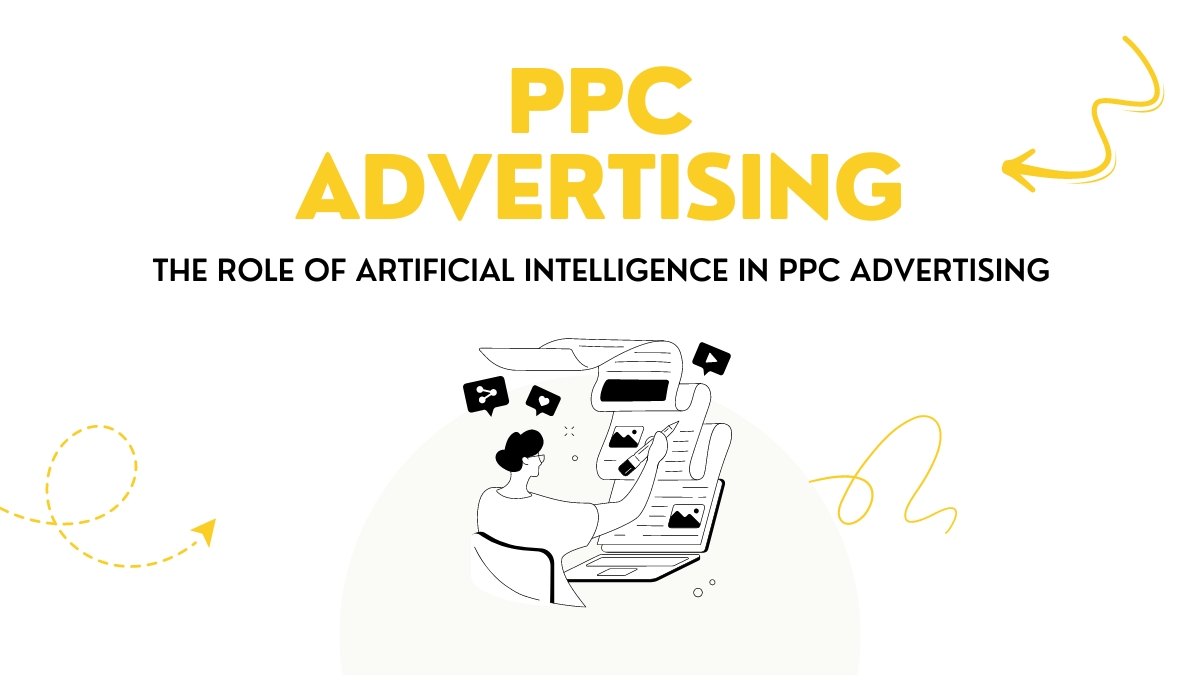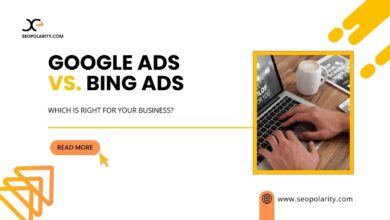
Artificial intelligence (AI) is transforming the world of digital advertising, particularly pay-per-click (PPC) advertising. AI algorithms can help businesses optimize their ad campaigns, reduce costs, and increase conversions. In this blog post, we will discuss the role of artificial intelligence in PPC advertising.
1. Automated bidding
In today’s modern marketing landscape, artificial intelligence (AI) has become a go-to technology for many businesses. AI can make it easier to manage and optimize Paid Per Click (PPC) advertising campaigns by automating the bidding process. Automated bidding uses complex algorithms to analyze large amounts of data in order to determine the optimal bid amount for each individual keyword. This helps businesses save time, resources and money by being able to focus on more important tasks such as creating content or testing new strategies.
Automated bidding is powered by machine learning algorithms that can track user behavior and identify patterns in order to adjust bids accordingly. With automated bidding, advertisers no longer need to manually set bid amounts or review performance data on a daily basis – this is all done automatically by the algorithm. Additionally, automated bidding provides insights into what keywords are performing well so you can adjust your strategy accordingly.
2. Audience targeting
Artificial Intelligence (AI) has become an increasingly important tool in the marketing world, and it’s no surprise that companies are turning to AI to help with their Pay Per Click (PPC) advertising campaigns. By leveraging audience targeting Artificial Intelligence, businesses can gain a better understanding of their target audience and develop highly personalized ad campaigns tailored specifically to them.
AI-driven audience targeting works by analyzing data on user behavior, interests, demographics and other factors. This allows for more accurate segmentation of audiences for PPC campaigns and helps companies reach out to people that are most likely to be interested in their product or service. AI also helps optimize ads throughout the campaign cycle by continuously gathering data about user behavior and adjusting the budget accordingly.
3. Ad copy optimization
Artificial intelligence (AI) is quickly becoming an essential tool in the field of pay-per-click (PPC) advertising. AI algorithms can be used to optimize ad copy, giving marketers and advertisers a powerful way to get their message out to potential customers. By analyzing data on ad performance, AI can identify which ad copy has the highest effectiveness, leading to better results for organizations.
AI algorithms can also be used to analyze search query data from customers and create more effective ads by targeting user intent. For example, if a customer searches for “affordable shoes” then an AI algorithm could recognize that this user is likely looking for shoes at a lower price point and serve them an ad with copy that speaks directly to their needs.
4. Predictive analytics
Predictive analytics is an invaluable tool in the modern age of digital advertising. It leverages artificial intelligence (AI) algorithms to analyze historical data and predict future trends. This type of technology can help PPC advertisers make informed decisions about their campaigns and stay ahead of their competitors.
Predictive analytics allow marketers to gain a deeper understanding of their customer’s needs and behaviors, which helps them create more relevant ads for each individual user. AI algorithms are also able to identify patterns in user behavior quickly and accurately, allowing for more targeted campaigns that ultimately lead to better results. Additionally, predictive analytics can be used to forecast changes in the market, such as shifts in demand or pricing changes from competitors. This allows PPC advertisers to adjust their campaigns accordingly and remain competitive at all times.
5. Fraud detection
As businesses increasingly rely on digital marketing and advertising, the threat of fraudulent activity grows. To combat this issue, artificial intelligence (AI) has stepped in to provide businesses with assistance in detecting and preventing ad fraud. AI algorithms can analyze data on user behavior, ad performance, and other metrics that may be indicative of fraudulent activities. This allows for more accurate targeting of individuals who have a higher chance of committing fraud, reducing the chances of malicious actors impacting your business’s bottom line.
By using AI algorithms to interpret large amounts of complicated data quickly and efficiently, businesses are better equipped to detect when fraudulent activities occur. For example, AI algorithms can recognize patterns in user behavior that might indicate an individual is attempting to commit fraud or scam the system in some way.
Conclusion
AI is playing an increasingly important role in PPC advertising. By using automated bidding, audience targeting, ad copy optimization, predictive analytics, and fraud detection, businesses can optimize their ad campaigns, reduce costs, and increase conversions. As AI technology continues to evolve, it will become even more essential for businesses looking to succeed in the world of digital advertising.





2 Comments